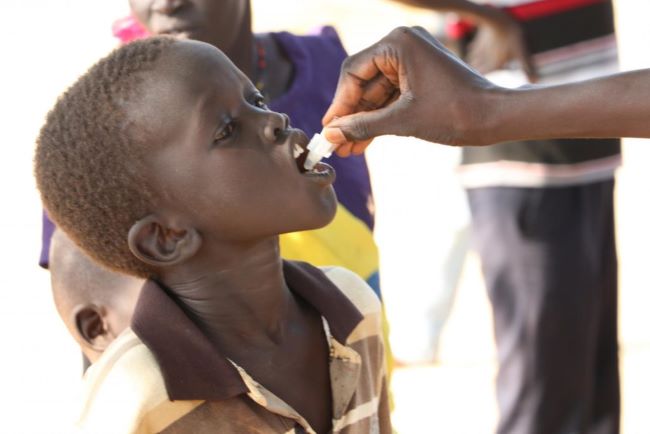The United Nations Children’s Fund (UNICEF) has launched a gender mainstreaming initiative aimed at increasing immunisation uptake by engaging male parents in routine immunisation and other primary healthcare-related issues.
The Chief of the UNICEF Kano Field Office, Mr Rahama Mohammed-Farah described Wednesday in Katsina as a momentous day for all involved.
The initiative was introduced in collaboration with the office of the wife of the State Governor, Zulaihat Dikko-Radda.
Mohammed-Farah was represented by UNICEF Health Specialist, Saudat Basheer.
According to him, for the first time in the immunisation space, we are launching the birth of gender-sensitive programming.
“We believe that the conscious engagement of men and fathers will significantly improve immunisation coverage in Katsina State.
“Our children should not be dying from diseases that are easily preventable with vaccines.
“Today, fathers and men have come together to help us achieve the goal of a Zero Dose and Polio-Free Katsina.
“Our vision is to scale up this initiative so that all men and fathers become committed members dedicated to making a difference in improving immunisation coverage and supporting global polio eradication.”
Mohammed-Farah commended Zulaihat Dikko-Radda for her collaboration with UNICEF in launching the initiative, which aimed to address noncompliance and zero-dose issues in the state.
The Gender and Development Manager at UNICEF, Ms. Takudzwa Kanyangarara who spoke as a panellist, highlighted the findings of the recent National Demographic Survey, which showed that only 39 per cent of children nationwide were fully immunised.
According to her, the good news is that in Katsina State, the rate is higher than 45 per cent.
Kanyangarara explained that gender plays a crucial role in both polio and routine immunisation efforts, as men were often the decision-makers in households.
“Therefore, involving men and fathers is vital in addressing challenges related to immunisation coverage.”
The wife of the State Governor, Zulaihat Dikko-Radda, outlined that the initiative, named Majalisar Rigakafi Immunisation Council, was designed to strengthen the demand for immunisation and other essential primary healthcare services.
“Over the years, we have made remarkable progress in improving access to healthcare.
“However, some challenges persist, including low immunisation uptake, misconceptions about vaccines, and limited access to primary healthcare services.
“It is evident that if we are to succeed in overcoming these challenges, we must adopt innovative, community-focused strategies that leverage the collective power of our people.”
Zulaihat Dikko-Radda explained that the strategy empowered both men and women in the community to engage in open, informal discussions about immunisation, antenatal care, child nutrition, and other primary healthcare services.
Also speaking, the Executive Secretary of the State Primary Healthcare Development Agency (SPHDA), Dr Shamsudeen Yahya emphasised the importance of involving more male parents in immunisation and child healthcare matters.
“This has become imperative because research indicates that zero-dose children are largely due to a lack of permission from the heads of families, typically the male parents.” .


